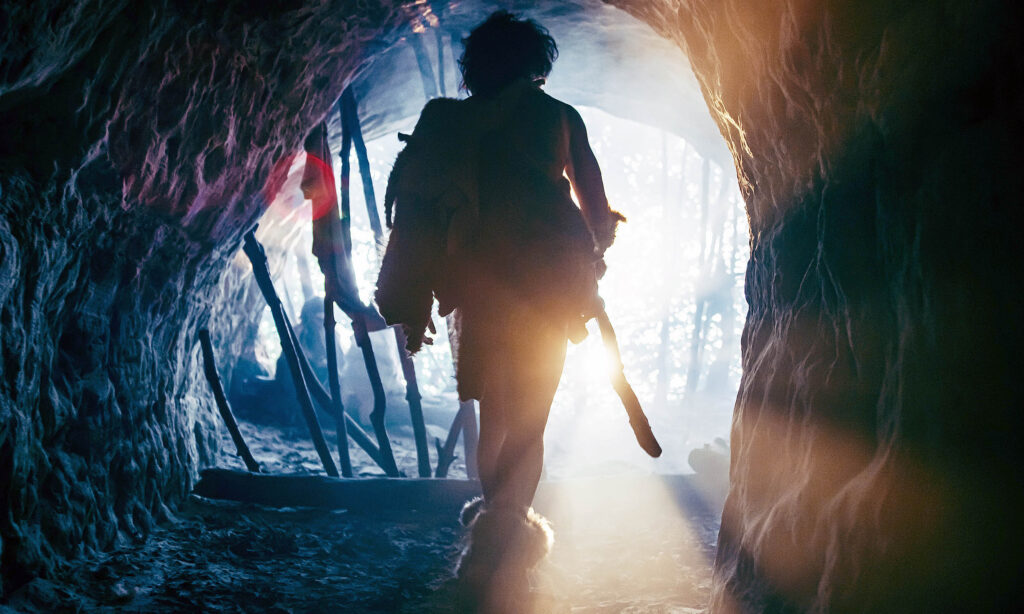
Some of the first human settlers in the Americas carried more than primitive skills and tools; they also brought with them a small but powerful genetic variant called MUC19. This gene fragment, inherited from the extinct Denisovans, appears to have played a crucial role in helping early humans adapt to new diseases, foods, and landscapes.
In a groundbreaking study led by the University of Colorado Boulder (CU Boulder) and in collaboration with Brown University, researchers traced a Denisovan-derived variant of the MUC19 gene, which is notably prevalent among individuals with Indigenous American ancestry.
Denisovans: A Genetic Legacy
“In terms of evolution, this is an incredible leap,” commented Fernando Villanea, an assistant professor in the Anthropology department at CU Boulder and a lead author of the study. “It shows an amount of adaptation and resilience within a population that is simply amazing.”
The discovery ties a deep past event to a much later journey. Long before humans crossed the Bering Strait ice corridors, Denisovans and Neanderthals interbred. Subsequently, Neanderthals and humans followed suit. Through this chain of interbreeding, a Denisovan version of MUC19 found its way into some human populations, where natural selection favored it in the Americas.
Extinct Cousins Left Their Mark
Denisovans were close cousins of both humans and Neanderthals, ranging from Siberia south toward Oceania and west onto the Tibetan Plateau. Fossil evidence is sparse, with the first recognized Denisovan identified only 15 years ago through DNA in a bone fragment.
“We know more about their genomes and how their body chemistry behaves than we do about what they looked like,” Villanea noted. Denisovan DNA has left a lasting impact on modern humans, influencing traits from immunity to altitude tolerance.
MUC19: A Gene for Survival
MUC19 is part of a family of 22 mucin genes in mammals that help build mucus, a frontline barrier protecting tissues and trapping pathogens. “It seems like MUC19 has a lot of functional consequences for health, but we’re only starting to understand these genes,” explained Villanea.
Earlier research revealed that Denisovans carried a distinctive MUC19 sequence, some of which was inherited by modern humans. While all modern humans carry some Neanderthal DNA, only about 5 percent possess Denisovan genes.
“Roughly one in three people of Mexican ancestry carries a copy of the Denisovan MUC19 variant.”
American Adaptation
Villanea and co-lead author David Peede analyzed existing genomes from individuals in Mexico, Peru, Puerto Rico, and Colombia, asking where the Denisovan MUC19 variant is most common. The answer pointed to the Americas, with a significant presence in those of Indigenous American heritage.
The team discovered that the Denisovan segment sits within a larger stretch of Neanderthal-derived DNA. “This DNA is like an Oreo, with a Denisovan center and Neanderthal cookies,” Villanea described. This suggests that Denisovans first passed MUC19 to Neanderthals, who then passed it to humans, marking the first clear case of Denisovan DNA reaching humans through Neanderthals.
First Settlers and Their Genetic Tools
After humans reached the Americas, natural selection seems to have favored the Denisovan MUC19 variant. The first Americans encountered environments vastly different from those of their ancestors, including new pathogens, foods, and terrains. A gene enhancing mucosal health could have provided a crucial advantage.
“All of a sudden, people had to find new ways to hunt, new ways to farm, and they developed really cool technology in response to those challenges,” Villanea noted. “But over 20,000 years, their bodies were also adapting at a biological level.”
Ancient Genes in a New World
The migration story spans ice, coastlines, and time. Early humans moved from a shared ancestral population around the Bering Strait into a continent with diverse biomes, from rainforests to deserts. “What Indigenous American populations did was really incredible,” Villanea said. “They adapted biologically and culturally to this new continent.”
Genes like MUC19 offer a record of that adaptation, capturing how ancient encounters with Denisovans provided tools that descendants later used.
Looking Ahead: MUC19 and Modern Health
The research team now aims to explore how different versions of MUC19 affect living people. Does the Denisovan variant alter mucus properties in the mouth, gut, or airways? Could it impact infection risk or inflammation? These questions could link an evolutionary story to contemporary health issues.
For now, the lesson is broad: human evolution is not linear but a braided river with tributaries from Neanderthals and Denisovans. Some of these tributaries carried genes that proved vital as humans ventured into new worlds.
The study, published in the journal Science, underscores how the first Americans adapted with ingenuity, culture, technology, and ancient DNA.
—
Like what you read? Subscribe to our newsletter for engaging articles, exclusive content, and the latest updates. Check us out on EarthSnap, a free app brought to you by Eric Ralls and Earth.com.






